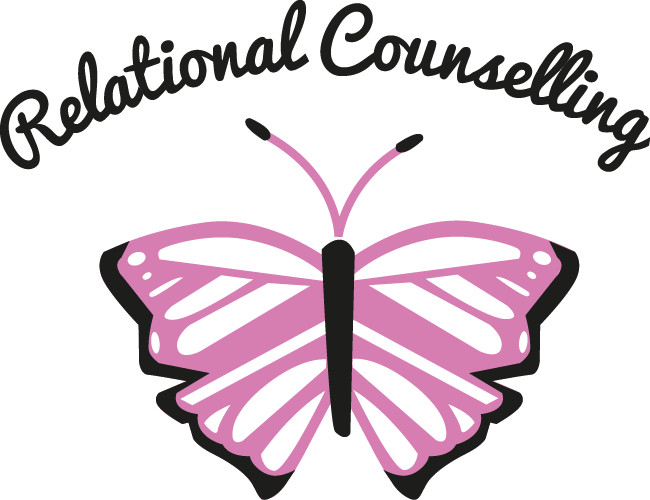Personal Boundaries
If you are the kind of person who can't say no and fear upsetting people, then you probably need to give your personal boundaries a makeover... There is a difference between saying yes out of choice and saying yes out of fear of consequences.
Poor boundaries can make relationships feel draining, leaving you feeling alone, sad, angry, used and disrespected. The unbalance of any relationship can be hazardous to your well-being, emotionally and physically. Whether you are struggling with relationships or considering making a new relationship, reflecting on your personal boundaries can be beneficial in many ways. Implementing boundaries will improve your quality of life.
What are personal boundaries?
Personal boundaries are a set of clear lines that inform others what is acceptable to you. As part of your identity and responsibility, setting expectations which keep you safe. If you don’t have clear boundaries, this means that you are probably putting other people’s needs above your own and unconsciously projecting the message, ‘go ahead and walk all over me!'.
As previously mentioned, providing kind gestures can be wonderful to express love to those we care about. This equally makes us feel good inside to express how we feel. Yet, if you do this too much, feeling obligated and afraid of saying 'no', then over time, this can be extremely detrimental. By putting yourself last all the time, you send out the message to others and yourself that your needs come second and that you don't matter.
Signs you have unhealthy boundaries
You don't know who you are (identity crisis)
You feel no one respects you
You secretly feel rejected or abandoned
You don't feel life has a purpose
You struggle to set goals
You find yourself backing down in disagreements to avoid conflict
You overshare private information about yourself with people you’ve just met
Relationships feel draining, difficult or dramatic
You struggle to make decisions
You don’t like letting people down (and feel guilt and anxiety just thinking about it)
You suffer from intimacy issues
Others take advantage of you in obvious or subtle ways
You feel overlooked or blamed at work, in family, and in social circles
People with poor boundaries will often struggle to know who they really are. They have low self-esteem and feel that no one listens to or respects them. Relationships feel draining, and they often feel tired because they always do what others want. This need to help others constantly is an unconscious need to seek approval, which stems back to childhood relationships. People pleasing is time-consuming, so they rush around trying to cram in all the things that they want to do, which is exhausting. People with poor boundaries also feel like victims (asking themselves why is it always me? or thinking nothing ever goes my way...). They avoid sharing how they feel and suppress emotions, resulting in an inability to have authentic intimacy with others and themselves.
How to create better boundaries to protect yourself and others
Define your reasoning (why you are setting the boundary, what the purpose is)
Consider your basic needs.
Don't be afraid to take a moment (voice this is what you need) and respond in your own time
If you need to signpost, do this accordingly (I cannot help you, but maybe you could....)
Serve yourself first (thinking of yourself is self-respect)
Red flags - listen to your gut (if something feels wrong, then listen to your instinct and step away from helping others).
Is Oversharing healthy?
In short, no, oversharing is not healthy. Some people can overshare personal stuff about their life, which is a sign of poor personal boundaries and can leave them wide open to manipulation. On a deeper level, they might believe they are not good enough and unloveable. Relationships can feel difficult and draining, yet they continue a relational pattern or seek approval from others. They struggle to say 'no', and constantly give all the time, not getting much in return. When people attempt to get emotionally close, they panic and struggle with intimacy. They might not know who they are and, therefore, struggle to voice their needs.
The impact of poor boundaries
Poor boundaries over time can have a physical and emotional impact. You might feel frustrated with yourself and others, resulting in having a short fuse and being annoyed most of the time. Sometime you might appear passive-aggressive to others. Outwardly holding in your feelings as you fear not being liked by those around you, yet frustrated, feeling that you are being taken advantage of. Lacking healthy boundaries goes back to your childhood, possibly not having a caregiver who provided compassion, unconditional love and acceptance. In childhood, you often have no choice but to do what others wanted to avoid being rejected or abandoned. However, as an adult today, these are the two things you may fear the most.
7 Types of Boundaries
1) Physical
2) Sexual
3) Emotional
4) Spiritual
5) Financial and Material
6) Time
7) Non-Negotiable (Based on law, ethics or morals)
We often view relationships as romantic connections. However, we actually have relationships with everyone in our lives.
Dating anxiety
Meeting new people can cause us anxiety and feel intimidating. Oversharing often happens because of anxiety when you are dating and getting to know someone. Anxiety is natural, and everyone feels nervous when meeting a new person for the first time. Dating often evokes those fears of thinking will the person find me attractive, funny, good company, etc. Oversharing can feel like relief that settles the anxiety, but it can also make the date feel like a therapy session. While it seems like a great way to create a quick connection or get those difficult topics out of the way, oversharing will not set the relationship off with a solid foundation for building a secure relationship.
Sharing and building emotional connections is the best aspect of dating; if done correctly, your experience can be a great way to get to know someone new. You don’t want it to ruin the experience by making your date feel uncomfortable or before you even have the opportunity for them to get to know you better.
Some common subjects that can be easy to overshare are the details about your previous relationships, current financial worries, and dramatic stories about your family and friends. A good tip is just to steer clear of any topics that bring up any negative feelings. Some people tend to overshare and are unaware that it is an issue or problem. Below are some signs and signals of oversharing.
Sharing intimate stories usually puts the listener in an awkward situation. Think About Your Reasons Why: If you are oversharing on your first date or in the first weeks of dating, it may be helpful to consider why you are oversharing and trying to skip the “getting to know each other” part of dating. If you feel anxiety when you are dating, this can cause you to talk too much or sometimes the opposite, you may shut down, so you share personal issues to fill in the silence. This may result in regret, embarrassment or shame.
If you always feel compelled to share those deep and personal details about yourself when you have just met someone, think about your intentions. Are you hoping to gain sympathy? or do you crave having a close and intimate connection? Oversharing can be an unconscious way of manipulating someone into feeling sorry for you, but this isn't the fast route you think it is.
Oversharing can push people away, not just in dating but in other relationships too! You leave others feeling suffocated and that you are too much. People can experience you as needy, which is an unhealthy way of relating. You are also opening yourself up to be used and hurt.
Brene Brown’s book, Daring Greatly, summarises the difference between oversharing and authenticity. She says, “Using vulnerability is not the same thing as being vulnerable; it’s the opposite—it’s armour.”Brene's book is a great read if you are considering dating and have a history of oversharing.
Tips for avoiding oversharing in dating
Try reviewing some positive dating topics before the date to better prepare yourself for anxious moments. You could begin by discussing hope and dreams for the future, adventures you aspire to do, hobbies, a book you recently read, favourite movies, comedy shows, or your favourite restaurants. Keep the topic light-hearted and if you find yourself thinking about more personal issues, maybe visualise a STOP sign. Remind yourself of how unhealthy it is and the consequences of oversharing.
Deal breakers
We all have expectations in relationships. There are times when we stay in relationships even though our boundaries have been crossed. Sometimes ending relationships can be difficult, but sometimes ending a relationship is important as part of our personal boundaries. These are known as deal breakers.
What are your deal breakers?
keeping healthy boundaries is important when starting or maintaining any kind of relationship. It is fundamental to have an understanding of when and how much we share to make other people feel comfortable. It works oppositely, too; if the other person is sharing too much, it is your responsibility to be tactful and honest. Telling people they are oversharing is not saying you don't care about them; you are demonstrating self-respect, expressing you care about yourself equally.
Sharing your personal story can be empowering. But only when you share it at the right time, in the right place, with the right people.
How therapy could help
Sometimes we don’t recognise that our boundaries are not healthy as it is not often we know how we are experienced by others. Seeing a therapist can help to build your awareness of how you are experienced in a relationship. A therapist can support you in making desired changes to make life feel more manageable.
-Written by Elizabeth




